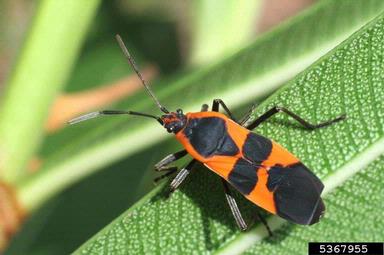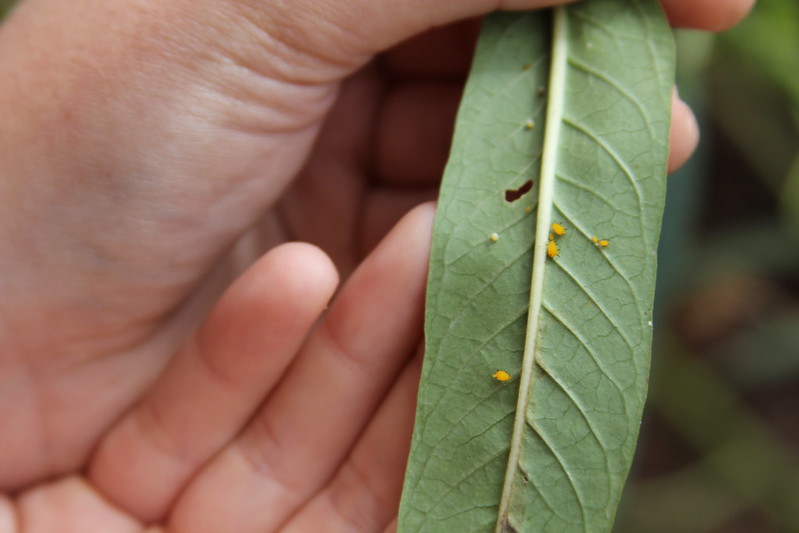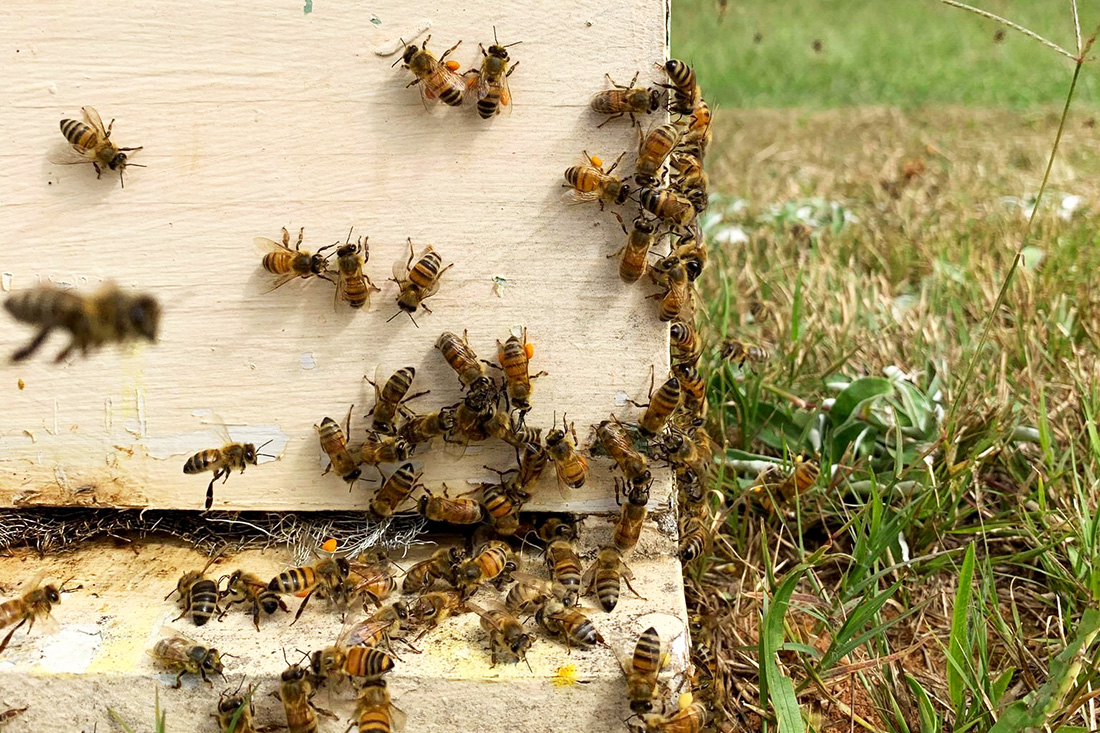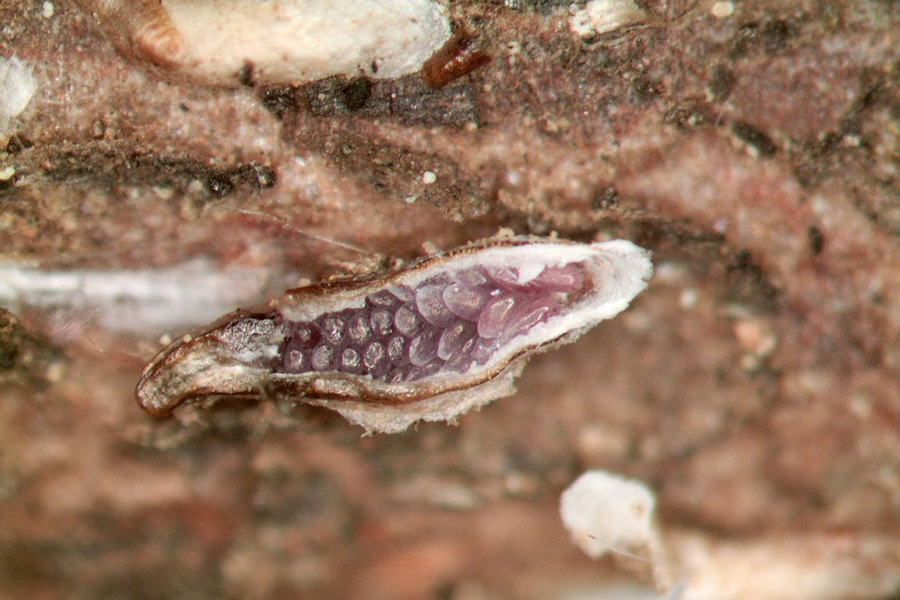With the fall migration underway for monarch butterflies through November, gardeners should soon start seeing the colorful creatures on their travels south. It’s also time to be on the lookout for pests of common milkweed (Ascelpias tuberosa), the most popular milkweed plant grown in Georgia butterfly gardens.
The larval plant of the monarch butterfly is grown by gardeners across the state to assist in monarch conservation, but milkweed can also attract insects that are less welcome.
The oleander aphid, Aphis nerii Boyer de Fonscolombe, uses piercing-sucking mouthparts to suck the juices out of the plant. Often called milkweed aphid, this pest can be a problem for young milkweed plants — older plants are more equipped to handle the damage.
If aphids are damaging the milkweed in your garden, simply use a wet paper towel to remove them. Wipe the insects off the plant and smash them inside the paper towel. You can also use sticky tape or packing tape to pull the aphids off of the plant. Smash the aphids by folding the tape onto itself.
Luckily, pollinator gardens attract other beneficial insects, like parasitic wasps, that can assist in aphid control.
Another pest to look out for is the large milkweed bug (Oncopeltus fasciatus). This insect is easy to identify with its dark orange and black coloration. Many gardeners choose to leave this insect alone, as it is part of the ecosystem. Unfortunately, milkweed bugs interrupt seed production by attacking the seed pods. If producing viable seed is important to you, you can remove these insects simply by picking them off the plant and dropping them into a cup of soapy water.
It is important to remember that any insecticide that you use will also affect the wonderful pollinators that you work hard to conserve. The monarch migration is coming in a few weeks, so watch for pests, reap the rewards of the hard work of butterfly gardening and enjoy the show.
To follow the monarch migration and to report your butterfly sightings, visit Journey North at journeynorth.org/monarchs. For many years, this organization has tabulated the reports of citizen-scientists and is a great resource for school groups. Monarch Watch, accessible at monarchwatch.org, provides online information about these insects and their habitat needs.
Contact your local University of Georgia Cooperative Extension office for more information about butterfly gardening and habitat building by visiting extension.uga.edu.





